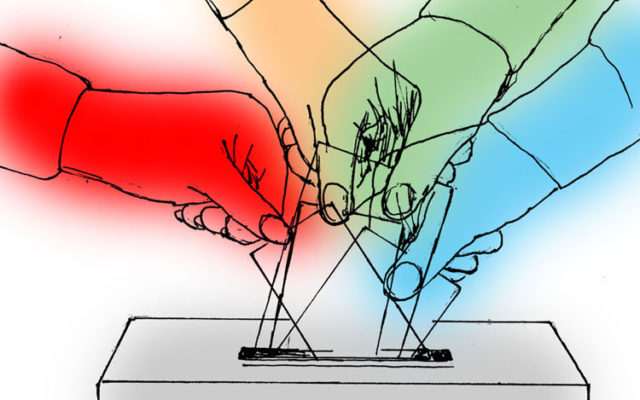
If you want a say in policies that impact your life, be sure to vote
I believe that the strongest case for exercising one’s right to vote draws along the dual lines of history and pragmatism.
America’s governmental philosophy and design is indebted to the Greeks and, to a lesser extent, the Romans (which is not to disregard empires and tyrannies that permeated both civilizations). According to Merriam-Webster and other reference materials, the word “democracy” refers to the Greek root demos, which is taken to mean the “people,” but more realistically means citizenry.
For much of recent history and indeed our recent history, the effective limits on who was deemed to be a full citizen were quite exclusive. While the history of franchise is well-known in the case of freedmen and women in the late 19th and early 20th centuries, Native Americans, for example, were denied full voting rights into the 1960s.
Fortunately, as Martin Luther King Jr. said, “The arc of the moral universe is long, but it bends toward justice,” and our citizenry has become more inclusive, more diverse, and more equitable as a result. By intent or happenstance, we Americans are party to a grand experiment where the vote is conducted without regard to caste, at an even weighting and without religious, racial or ethnic preference — perhaps not a unique achievement, but an important one all the same.
While this work of engaging more of the voter population is in progress, participation rates remain relatively flat. I take this to mean that there is significantly more work to do, and at root is the need for participation. If we were to engage the entirety of our voting population — a vast, diverse group of people spread across 50 states, six extra-national territories and expatriate communities — it would be an historic accomplishment in a status of all its own. All of which, synthetically, is one reason why I vote regularly and encourage others to do so as well.
My other reason for voting comes from a more terrestrial level. Even if one chooses not to cast a ballot or is otherwise prevented from voting due to access, one does still “vote” with silence, and that silence is perhaps more profound than we regularly consider. In the 1960s, Richard Nixon spoke of the “silent majority,” and into the early part of the 21st century, that conversation has continued through a swell of activism and political movements.
In whatever case and in whichever fashion, the world continues to turn, and decisions continue to be made with or without the consent of the public. Arithmetically, the fewer people who vote, the greater the percentage each vote cast counts for — and, while cynicism tells us that individual votes are inconsequential, en masse they are foundation-shaking.
There is nothing paltry about entire segments of our voting population not participating in the process. The very candidates we vote for, the referenda put forward by public officials, the taxes that are levied on our behalf, can all be ontologically traced back to earlier validation through the vote. The earlier and more frequently one participates in the process, the more effective of a say one has. There is no part of our society that is untouched by public policy — not even our bodily health — and we ought to behave as though that is the reality.
There is nothing as equitably distributed in the United States as intellect — regardless of background, heritage, or even lifestyle, we all have the capacity to learn, reflect and act. This holds true in our education, our careers, our families, and our larger society. Voting requires an active, intellectual citizenry to be authentic as well as representative. I hope that we continue to make great strides in voting together regularly and routinely.
Joeseph Hennessey is an English teacher at Piscataquis Community High School. He was the 2019 Maine Teacher of the Year.
